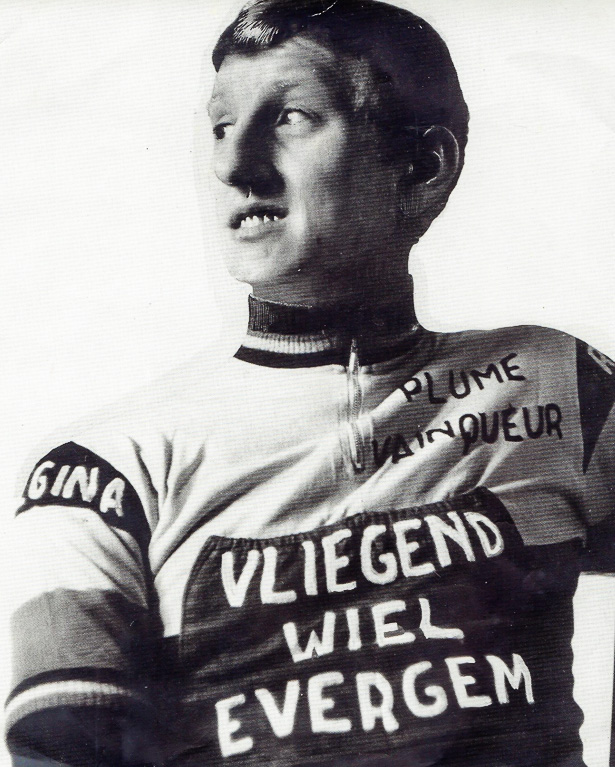
It’s always nice when readers write in and get involved with our mutual passion; especially if it’s something new to us at VeloVeritas.
Graham Robson enjoys our pieces about riders from the past and emailed us to ask us if we had any plans to track down Englishman Bob Griese, who’d ridden for Mercier in the 60’s.
To my shame, I hadn’t heard of the man but started my investigations – I was told by one of my contacts that sadly, Mr. Griese was dead.
End of story – but not quite.
As Mark Twain said; ‘the report of my death was an exaggeration’ and we were delighted to receive an email from Bob who now lives in Canada.
Here’s his story from the 60’s when there was no Easyjet, internet, mobile phones and Belgium was still functioning as it had around 1934.
Tell us about your roots, Bob
“I’m originally from Bristol in the UK – my Dad was a cyclist – I rode for Western RC and Kingwood RC.”
Did you do much in the UK race-wise?
“No, I didn’t take it very seriously as I knew from age 15 that I was going to go to Belgium because “Sporting Cyclist” was full of stories of guys who had “made it” in France never to be heard of again.
“Belgium was the toughest place to race in the world.
“In 1964 I went for two weeks holiday and got a third place in Gavere; I went back in ’65 for a full season and took two wins – Elsele and Saint Livens-Houtem, I think.
“But it’s a long time ago so forgive me if the spellings are incorrect; I was also 12 times in the first three.”
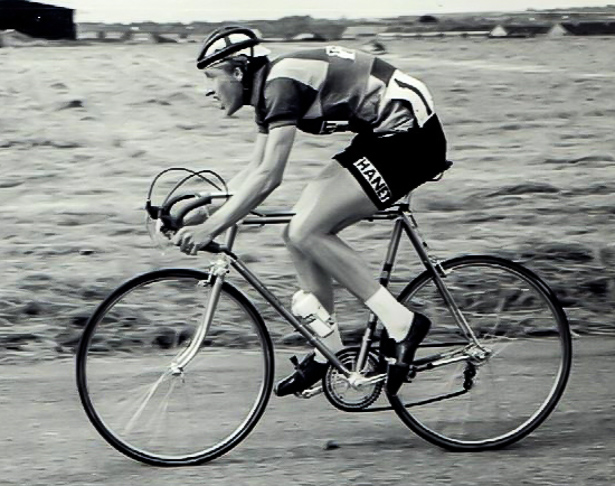
Tell us about your pro career.
“I turned professional when I didn’t get selected for the GB amateur Worlds team.
“I initially rode ‘en musette’ [bike and clothing only – no contract, ed.] with the Terrot Leroux team.”
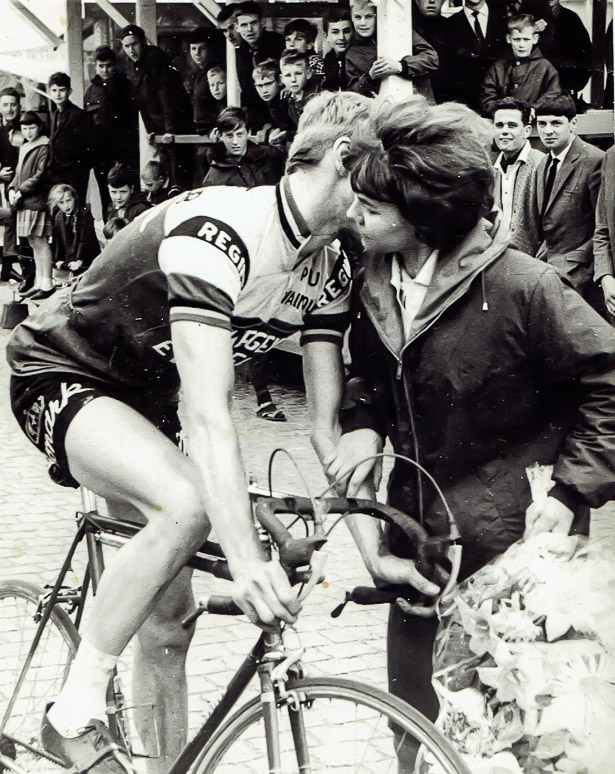
How about the pro results?
“In 1966 I had four wins; in Boekhoute, Waregem, Sinaai and Zwanaarde and I had one other third and a sixth in two Star Races – they were the top Belgian amateur races of the day, like the ‘InterClubs’ today.
“I was third on Stage Three of the Ronde Artois, and over the course of the season returned 36 top three placings.
“I was sixth in the Circuit of the Port of Dunkirk and rode the four days Tour De Nord.
“In that race I spent most my time getting puncture victims back; averaging a dozen or more times per stage.
“I was caught three miles from the end of the last stage after a 60 mile solo over the hell of the north.”
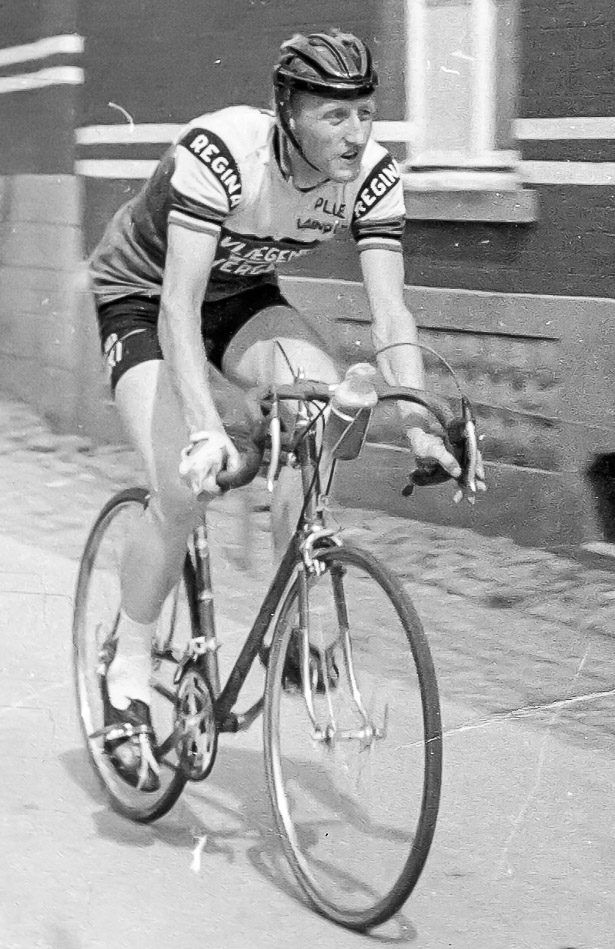
“In 1967 I was with Mercier BP, thanks to Barry Hoban [one of GB’s greatest riders with eight Tour stage wins and Gent Wevelgem on his palmarès too. ed.] who was on the team, albeit again, I was ‘en musette.’
“Barry was a real gentleman and a big help to me.
“In Liege-Bastogne-Liege I crashed 15 kilometres from the finish with just 22 of us left in the race – it was freezing cold rain that day.
“Then in August in the Antwerpse Pijl I was in collision with a car at the finish of the race and broke my shoulder blade.
“In 1968 I was with Mercier again, ‘en musette’ and rode all the spring classics in Belgium as a domestique – mainly off the back bringing puncture and crash victims back.
“But I crashed at in a race at Petite Enghien and shattered my hip; the thing is that I had been told to pull out at 100 miles to save myself for Liege-Bastogne-Liege which was in three days’ time.
“It was ironic because Mercier management was coming to Liege-Bastogne-Liege and I was to sign a “real” contract with the team.
“I was knocked off on the Muur of Grammont by Graham Webb – there was irony in that too because he was a Mercier rider!
“I shattered my pelvis and hip joint and was in hospital for three months.
“That basically finished my career.”
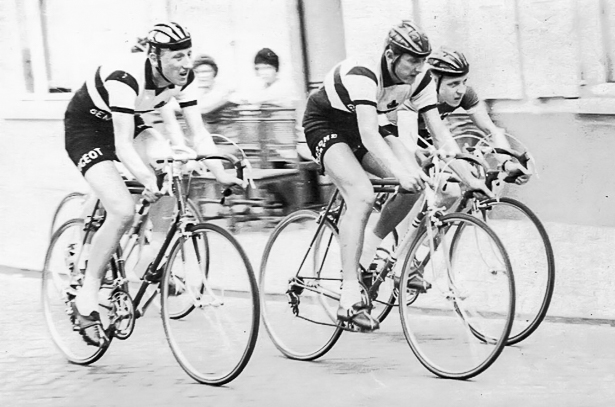
You rode in Britain for a while?
“In 1969 with Wilkins Lutz, riding one legged basically.
“I couldn’t cut it in the UK dodging cement trucks and stopping at ‘Halt’ signs after riding in Belgium where you could ride good races five or six days each week.
“I did get a contract to ride at Le Poire Sur Vitre for £30 start money but after that I finished up.
“It was hard though in Belgium, living hand-to-mouth with just primes and place money – it was pretty tough and the Belgians’ attitude towards.
“Brits didn’t help, they’d often sit up when they saw you in the break and always chase no matter who else had slipped away.
“The average kermis koers – which were held six days each week – would have 100/150 starters.
“Along with the Merckxs, Van Looys, Sercus and the rest would be dozens of very good riders totally unknown outside of Belgium.
“Lots of these guys would be on contracts of 5000 francs per month, about the wage of an unskilled factory worker in Belgium.
“Many more of them would be en mussette.
“The result was that at the end of a race with a prize list down to thirtieth everyone sprinted – no holds barred.
“100 guys going for the line gouging, spitting, punching, hooking and switching not to mention jersey-pulling was pretty awe inspiring, absolutely no lead-outs, no rules… I wasn’t too bad at this, desperation brings it’s own rewards – or pile ups…
“I have no criticism with modern riders but it is kind of strange to watch them twiddling like demented Ken Cravens [fixed wheel time trial star, ed.]. My top gear was 55 x 13, most rode 53 x 13 and used that most of the time – certainly towards the end of a race.
“We took a lot of stick from the Vlaamands, cosseted in their tracksuits by moms and wives, doing nothing but riding their bikes whilst we had to cook, shop, clean and maintain our bikes, clean our apartments and all the rest with no time to relax – and all this in a very foreign environment, with a language and lifestyle barrier.
“I’d have liked to swop places with Daniel van Ryckeghem (talented and respected Belgian who never ‘won big’ but was always there – and did win Henninger Turm, the E3 and Kuurne) for a week – except for his wife!”
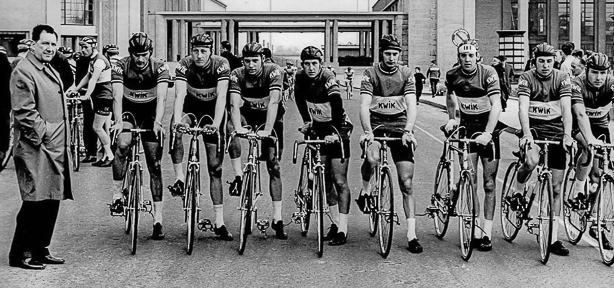
What did you do after you quit the bike?
“When I was finished on the bike I kept quitting jobs, floundered around, emigrated to Canada in 1970, got married, went back and forth across the Atlantic a few times – did various jobs.
“I ended back permanently in Canada in ’83.
“I don’t follow cycling much now, I took up horse riding and keep horses, still, on a small north Ontario farm.”
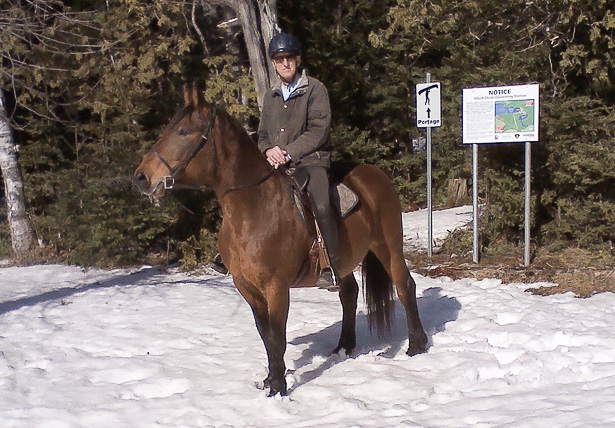
Regrets?
“If I had to do it all again I would have to say “No”, knowing the full story – but the experience does tend to define you.
“Yes, it was a buzz to race against these guys but at first it was hard not to be a tourist.
“Rik Van Looy (Classics King – he won them all) was a cool guy; Walter Godefroot (Paris-Roubaix and Flanders winner) and Peter Post (Paris-Roubaix winner and Six Day king), were really nice guys.
“But there were some real jerks – Arthur De Cabooter (Het Volk and Flanders winner), Roger Swerts (Belgian Champion and Gent-Wevelgem winner).
“Alex Taylor wanted me in the British team in the ’67 TDF… Tom Simpson said “no way” so I leave it to you to decide which category I put him in!
“Maybe you should write some more articles about the riders from that era who never made it, not necessarily for lack of ability: Peter Crinnion, winner of the Route de France, then riding in Belgium with Libertaas Lamot; Alan Ramsbottom; Derek Harrison, et al – not to mention myself.
“I have a hundred stories and anecdotes – and I’m sure they do too – about a time when it wasn’t cool to be an Anglo in the peloton.”



